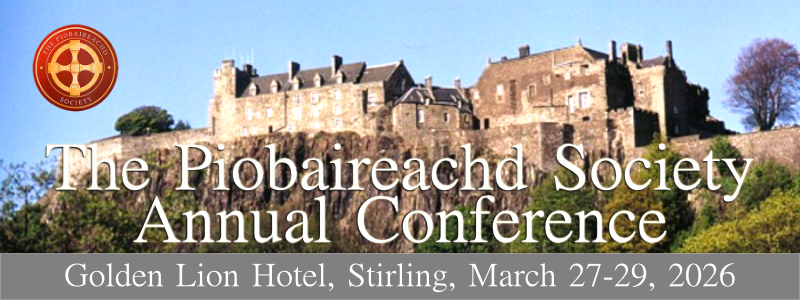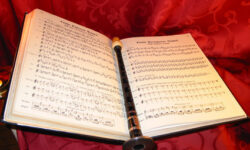
The BBC has further responded to criticism over the axing of Radio Scotland’s flagship piping programme ‘Pipeline’. A series of well-supported complaints petitions was launched, somewhat belatedly, after Piping Press revealed the story last December.
The Corporation did respond to our article at the time but now BBC Scotland’s Head of Commissioning, Louise Thornton, has underlined what was said in answer to our report – and confirmed continued coverage of the Worlds.
In a letter in the Press & Journal newspaper (yesterday, Jan 31) she replied to Gaelic writer and activist Angus Peter Campbell’s letter to the same newspaper (Jan 26) headed ‘Shame on the BBC for Switching off Piping’.
Ms Thornton dismissed Mr Campbell’s letter as ‘inaccurate’ and continued: ‘BBC Radio Scotland is not removing pipe music from its schedules.
‘A new piping programme will remain in the current ‘Pipeline’ slot on a Saturday. Until that change is made ‘Pipeline’ will continue to air, so there will be no break in dedicated programming for pipe music. It is also worth noting that we will also continue to cover live events such as the World Pipe Band Championships.’
Ms Thornton then goes on to blame the freezing of the BBC licence fee for the ‘decommissioning’ of two other music programmes, ‘Classics Unwrapped’ and ‘Jazz Nights’.
She says the corporation is refocusing on digital output in response to how audiences are now consuming content and adds, ‘BBC Scotland currently invests £5m every year in the BBC Scottish Symphony Orchestra. But until now the orchestra’s concerts have not been heard on BBC Radio Scotland. In future they will be…’
She concludes, ‘BBC Scotland will continue to have music programmes on air every day of the week across a range of genres….’

We are grateful to our correspondent Duncan Watson for forwarding the correspondence from the Press & Journal. Mr Watson writes, ‘In regards to ‘Pipeline’, on many occasions I am disappointed by the content and, using the descriptive term applied to the old fashioned wireless, ‘I screw the power button off’.
‘In order to hear some interesting features I have endured groups with guitars and the like. If there is a demand for that, then a separate programme might be considered. The piping programme should not be watered down as it has been in recent years.
‘In times past, solo piping and pipe bands were the heart of the programme. It was informative and interesting. Currently at times there are repeats and those repeats can occur within a very few weeks, though I will say repeats of historical archival material is of interest.
‘I appreciate that the programme producers may have difficulty obtaining fresh material so why not ask pipers to contribute? There’s is a lot of very good equipment out there. This may require a certain amount of monitoring to ensure that the standard of recordings and playing is acceptable, but it could encourage a greater listening audience than seems to be the case if ‘Pipeline’ is being discontinued..
‘Reference is made to the coverage of the World Pipe Band Championships. Important though it is, it is a relatively small part of piping activity, taking place but once a year and invariably there are multiple repeats of some of those performances.
‘It is noted in the content of Ms Thorburn’s letter that the BBC Scotland invests £5 million every year in the BBC Scottish Symphony Orchestra.
‘I genuinely wish the orchestra the very best of health. However it seems with that kind of investment that money is available from the licence fee which I along with others pay. I doubt if the cost of the piping programme for an hour a week costs anything like what is invested in the orchestra.’
















It is good that Angus Peter Campbell has smokeď out the BBC’s position. At face value they appear to be giving a commitment to continue with a dedicated piping programme. Personally l think it affords an opportunity to build on what ‘Pipeline’ does and perhaps be a wee bit more outgoing. As a piping steward l see a lot of what is going on out on the circuit. The last two Inveraray Games have had excellent competitions across the grades but l don’t believe ‘Pipeline’ gets out to this event and the many others up and down the country. These games showcase up-and-coming pipers not just from Scotland but from around the world with substantial audiences. Even if ‘Pipeline’ got out to one a month l think it would add to the tapestry and variety of the programme. The Worlds and the Glenfiddich are important but they are only a small part of what’s going on. Last summer at Inveraray, before my competition started, l was able to listen to Angus MacColl playing Lament for Mary MacLeod at the back of 9am, a competition winning performance. That would have been a fitting contribution to a wider ‘Pipeline’ experience. Angus Peter smoked out where the BBC has got to. It would indeed be fitting if his daughter Brighde, a very good piper, was on the new first programme.
It has been fortunate, for piping broadcasts, that this proposed cut in piping programs did not slip through the net. That potential programming cut would probably have been impossible to reinstate, had the BBC been successful in implementing their plans fully.
The numbers of people who support and listen to piping programmes, may have surprised the BBC and I suspect they mistakenly thought that they could slip this through without anyone noticing.
It is strange (but not surprising) that BBC Scotland’s Head of Commissioning, appears to blame the freezing of the BBC licence fee for the need to make these various cuts but, there are many other saving solutions that could be made within the BBC. The corporation may want to look at the inflated salaries they are paying pundits to comment on sports fixtures and the axing of one position, could potentially make a saving about £1.3 million per annum and there are many more. That one cut/saving could add approximately £25k per week to the music departments of the BBC and could vastly expand the number of piping programmes available to both listeners and viewers alike.
While the BBC continues to take a licence fee from all their listeners and viewers in Scotland, it must continue to cater for all tastes in music and not least bagpipe music. More power to the elbow of those who spotted this issue in time and took action to stop a move to remove/dilute something, that is part of our history and heritage and which is in the blood of many people all over the world.
Hamish Fraser
It was an afterthought, but when I read that the BBC “invest” £5 million per year to the The Scottish Symphony Orchestra and they have not yet performed for the BBC, I was somewhat surprised, added to which in all probability if the Scottish Symphony Orchestra was featured in a specific programme or show sponsored by the BBC, they would obtain a fee, probably paid for by the BBC. I don’t grudge them the cash as I am aware that running such an Orchestra has great expense to it. I find it interesting that pipers are taking interest in the Piping programme. Some years ago, for my sins, I sent a letter to the BBC outlining some of the then current deterioration in programme content and not surprisingly did not get a reply. Since then the deterioration has continued. Maybe a good few years back, I was encouraging friends and more importantly pupils to tune into the programme, but in the more recent years, they took less and less notice and importantly pupils particularly, were less and less inspired by what they were hearing.